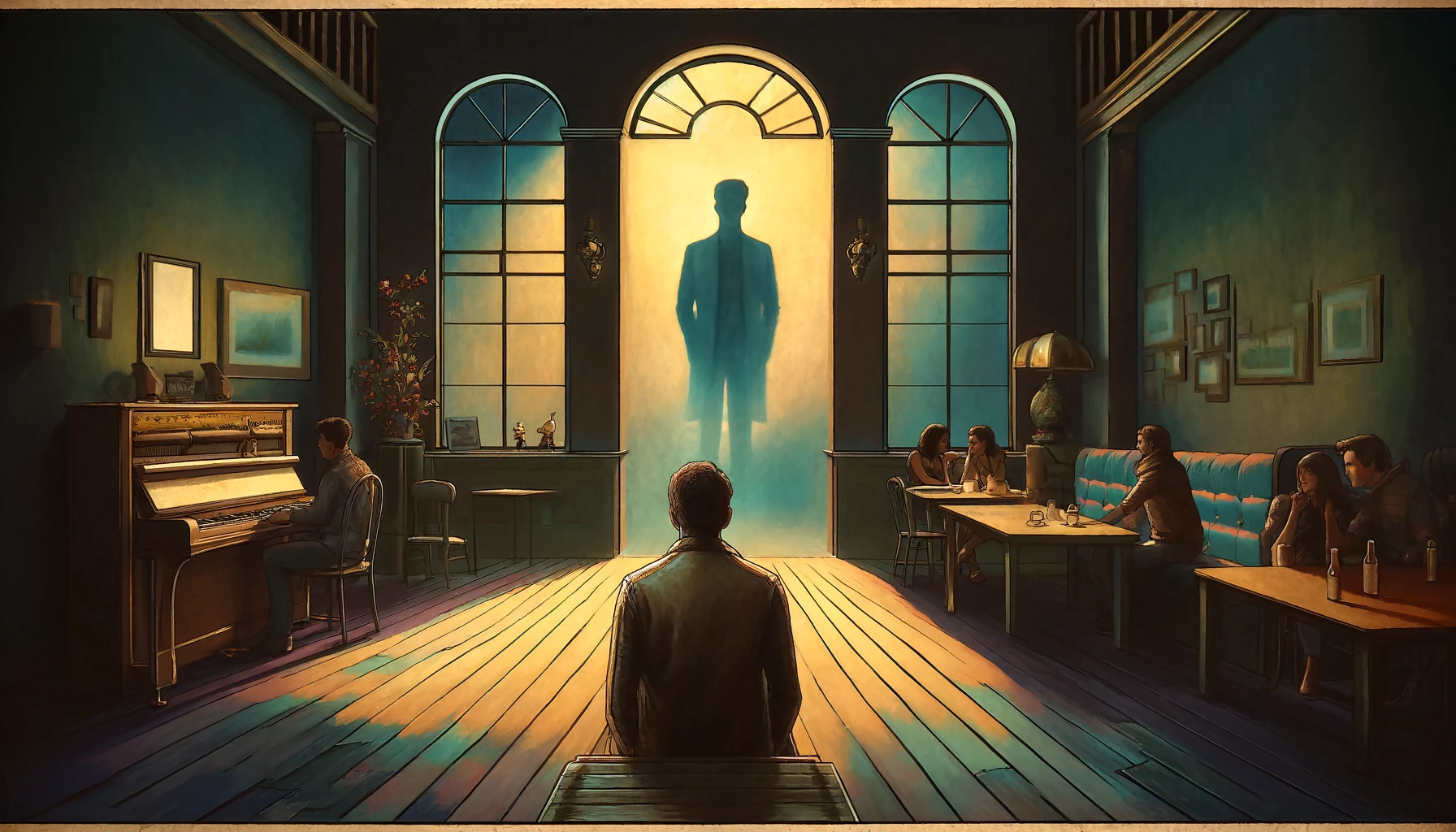Leaving It Up To You by George Ezra captures a melancholic yet resigned reflection on a past relationship. Let’s delve into the lyrics to unpack their meaning and emotional nuance.
Verse One
The first verse sets a scene filled with nostalgia and a hint of sorrow. The “bleak halls of an architect’s un-imagination” evoke a sterile, uninspired place, mirroring the emptiness the narrator feels. Returning to the venue of their first conversation symbolizes a longing to reconnect with a significant moment in their past. The lines “To see you again, to be your friend, to hold you in my mind” suggest a yearning for closeness and the preservation of memories.
Chorus
The repetitive chorus, “Leaving it up to you,” emphasizes a sense of surrender and helplessness. The narrator seems to acknowledge that the future of their relationship is out of their hands and dependent on the other person’s decisions. This repetition also hints at the difficulty of letting go and the lingering hope that something might change.
The “Oh-oh-oh-oh” section serves as an emotional release, a non-verbal expression of the complex feelings stirred by the situation.
Verse Two
The second verse introduces tension with the mention of the new partner, who is described with a mix of jealousy and bitterness. The lines “It’s a damn good job he isn’t here or I may have wound up harming your darling” reveal a darker side of the narrator’s emotions, indicating unresolved anger and pain. Yet, the desire to “see you again, to be your friend” persists, showing the inner conflict between affection and resentment.
In the bridge, the narrator recounts moments of joy and camaraderie, abruptly interrupted by the presence of the new boyfriend. The term “half-wit” underscores the narrator’s disdain and sense of superiority. This section highlights the contrast between the past and present, deepening the sense of loss and unfulfilled desire.
Overall Theme
The song’s overarching theme revolves around unreciprocated feelings and the struggle to move on. The narrator’s repeated assertion of “leaving it up to you” reflects both a relinquishing of control and an implicit hope that the other person might eventually choose to rekindle their relationship.
Ezra’s delivery, combined with the lyrical content, creates a poignant and introspective atmosphere. The mixture of nostalgia, bitterness, and reluctant acceptance is palpable, making the song resonate with anyone who has experienced the heartache of seeing a former love move on while still holding onto memories.
In essence, “Leaving It Up To You” is a deeply personal and reflective piece that captures the complexity of emotions tied to past relationships and the challenge of letting go.
